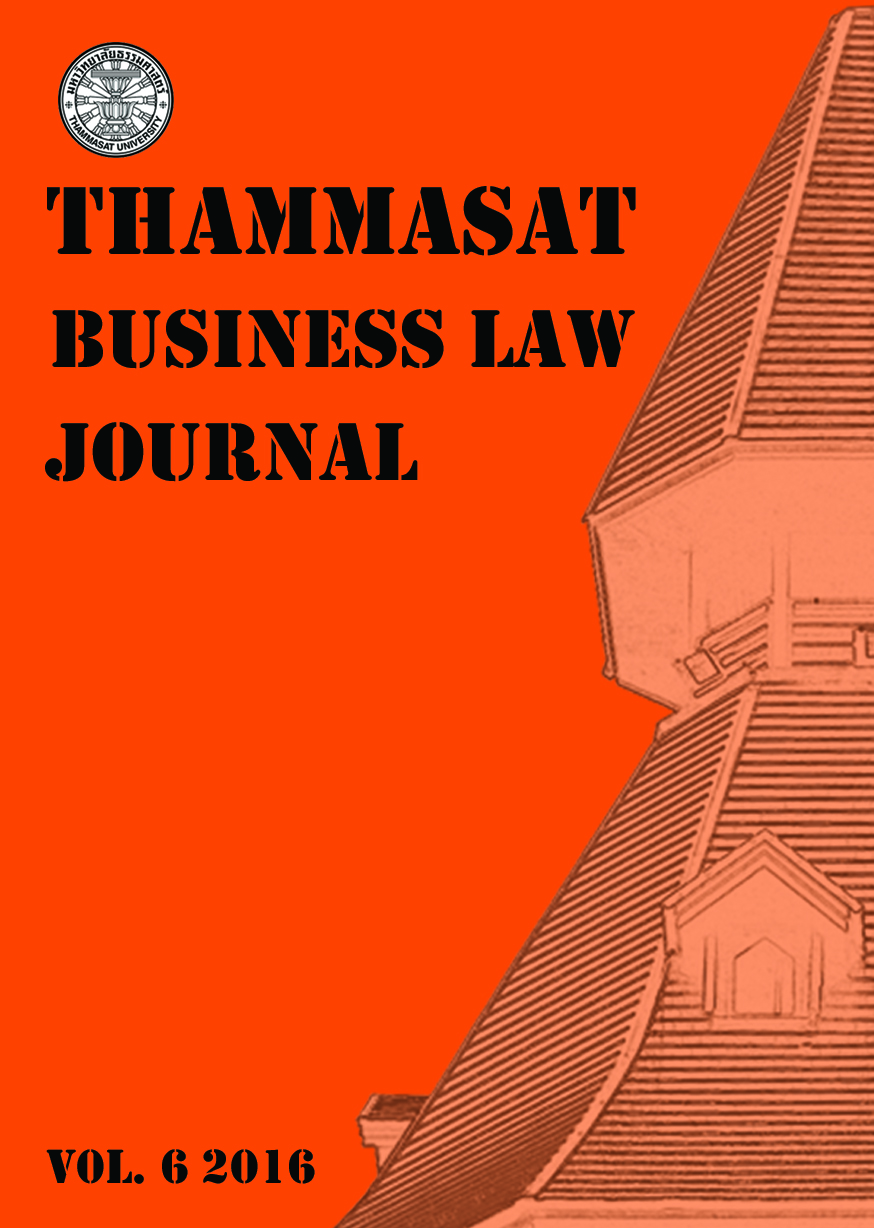ANTI-MONEY LAUNDERING AGAINST VIRTUAL CURRENCY IN CASE OF USING BITCOIN
Main Article Content
Abstract
Anti-Money Laundering is a set of rules and guidelines designed and agreed among countries to use as standard policies and framework in establishing their domestic laws on prevention and suppression of money laundering activities.
The expansion of the financial sector and businesses brings about the continuous development of innovative and new financial instruments to facilitate the businesses. In parallel with this development, criminals also take advantages of the unfamiliarity to the newly developed innovation and create new money laundering methods. In this circumstance, and whilst the financial sector is a foundation of the national economic, the government and relevant state authorities have to monitor closely and supervise such new innovations. Among other innovations, virtual currency is created to facilitate financial transactions. It was found that virtual currency is the new financial innovation and also the system that used to connect with the customers through the online network via the internet. The key points of this currency are the description of it which are anonymous account and the system used in the transaction which is the peer-to-peer or blockchain connection system. These features are different from the standard financial instruments such as fiat currencies, financial institution, bank and non-bank business.
The virtual currency is considerably new in Thailand. To date, the laws have not been developed to effectively govern the transactions using the said virtual currency. Exchangers, administrators, and users of the virtual currency are not within the scope of governance of the Anti-Money Laundering Act; nor are they subject to any other regulations. In other words, obligations and requirements under the Anti-Money Laundering laws do not apply to the virtual currency transactions and/or the involving parties. Thus, there are certain loopholes for some criminals to use the virtual currency instead of money in various financial transactions to avoid detection by the state authorities. Lacking of government supervision in this part leads to a new risk of money laundering through the virtual currency.
This thesis studies the Anti-Money Laundering processes in the United States in comparison with those in Thailand, specifically focusing on the issues of money laundering using a kind of virtual currency: Bitcoin. Bitcoin is the most prevalent kind of virtual currency and is addressed widely and extensively in US laws, regulations and court judgments. Those laws can be useful guidelines for Thailand to develop its appropriate solutions for the problem of money laundering through the virtual currency. The key preventive measures under the Anti-Money Laundering Act are customers profile verification and transactions monitoring and recording. These measures are the essential procedures to control and monitor transactions to reduce the risk of money laundering. Also, it can also examine the suspicious transactions or suspect profiles of each customer. These methods could apply to the virtual currency and their relating business for supervision and manage the risk of money laundering as same as the other financial business under the Anti-Money Laundering law and regulation.
Article Details
References
Calvery, Jennifer S., 'Statement of Director Financial Crimes Enforcement Network United States Department of the Treasury Before the United States Senate Committee on Banking, Housing, and Urban Affairs Subcommittee on National Security and International Trade and Finance Subcommittee on Economic Policy', 2013.
Greene, Olivia. 'Risk Advisory, Risks and Challenges Associated with Bitcoin Transaction Monitoring for AML,' 2015. Accessed June 5, 2016. https://www.dhgllp.com/Portals/4/ResourceMedia/publications/Risk-Advisory_Bitcoin.pdf
Pamplin, Berkley A., 'Virtual Currencies and The Implications for U.S. Anti-Money Laundering Regulations'. Master of Science in Economic Crime Management, Utica College, 2014.
Peng, Starry. 'BITCOIN: Cryptography, Economics, and the Future.' School of Engineering and Applied Science, University of Pennsylvania, December 2013.
Securities and Exchange Commission v. Trendon T. Shavers, et al. The Complaint, (2014). Accessed June 7, 2016.https://www.sec.gov/litigation/complaints/2013/comp-pr2013-132.pdf.
The Financial Crimes Enforcement Network, FIN-2013-G001: Application of FinCEN’s Regulations to Persons Administering, Exchanging, or Using Virtual Currencies, 2013.


